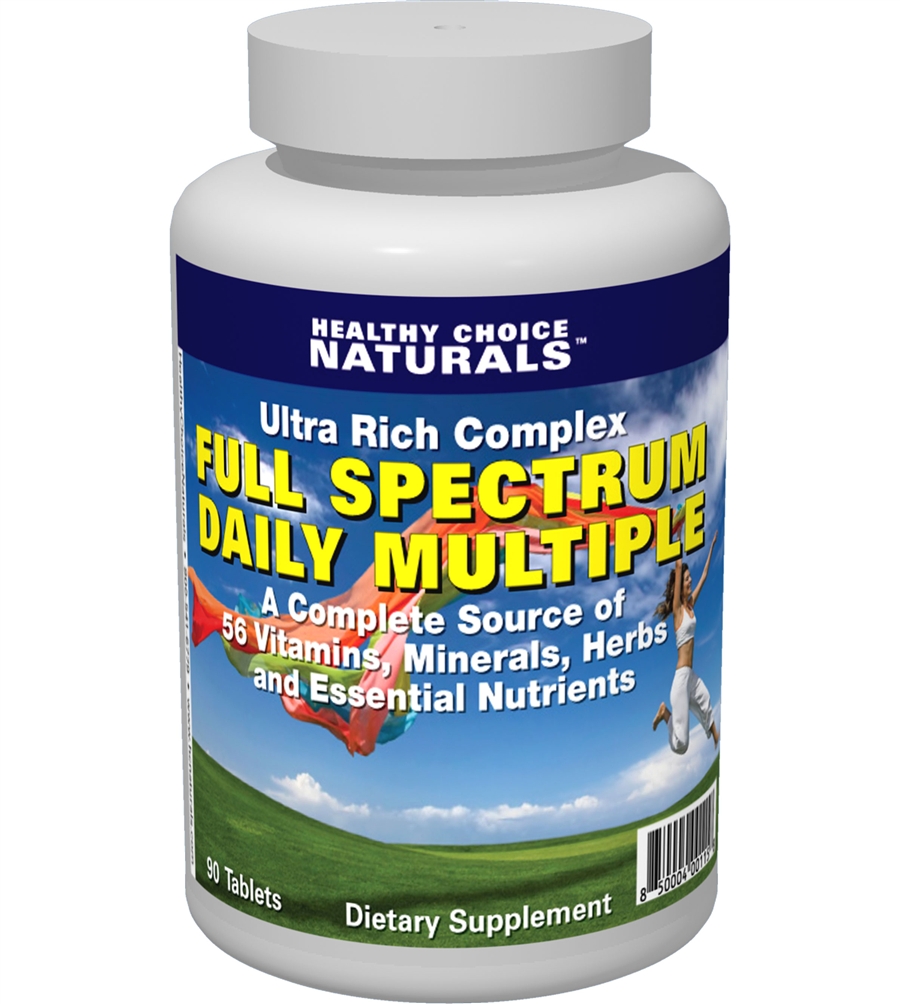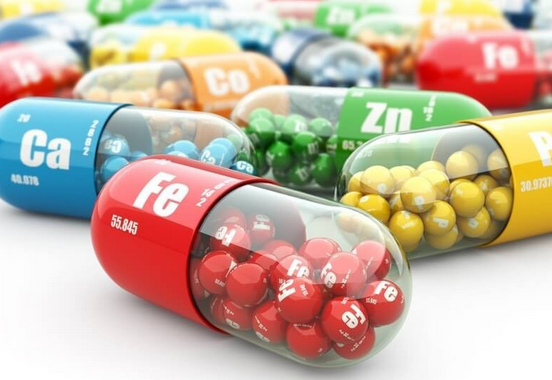Top 10 Vitamins to Be Healthy All Year Long!
Have you checked My Canadian Pharmacy section of vitamins and natural supplements yet? It can actually blow your mind how many good vitamins and supplements are offered in drugstores these days, don’t you agree? However, each of us may question themselves at times – do we actually need to take all those vitamins as they say in commercials? Are these vitamins necessary for people who have a healthy immune system and eat a lot of vegetables and fruit full of natural vitamins? Below, we attempt to find out what vitamins you need to use all year long and why.
What are vitamins and why do we need to take them?

Vitamins (from the Latin “vita” – life) are required by our bodies in a very small amount, compared to other nutrients. However, vitamins are completely irreplaceable, for no internal system of your body will work without them.
All known vitamins today are divided into two groups: fat soluble and water soluble:
- The first smaller group is of fat-soluble vitamins (A, D, E, K) ) that can be accumulated in a body, so you can actually take a sufficient amount to stock upon.
- But the most of vitamins are water soluble (vitamin C, all B vitamins, bioflavonoids) and they do not have this ability. This means that no matter how many of these vitamins we eat, our bodies use only the necessary amount of it, and the excess is not accumulated, but removed by the kidneys. No matter how many fruits and veggies you eat in summer, you still need to receive vitamins C, B and bioflavonoids in winter.
The need for vitamins for a person is extremely high all year long and it is impossible to take them only with food because no diet in practice can be as consistently healthy and varied as to ensure you receive every vitamin on the list in daily needed amount, day in and day out. Such a regimen looks barely doable on a piece of paper, and is practically impossible in practice. To avoid vitamin deficiency, 80% of Americans and 60% of Europeans take multivitamin preparations on a daily basis.
Some diseases like scurvy and beriberi that are related to a lack of vitamins – vitamin deficiency – were described long before the discovery of vitamins in 1913, when there was discovered the first vitamin A.
An interesting fact: The American Institute of Nutrition established after extensive researching that about 60% of Americans have a deficiency of vitamin C, 40-80% – of vitamins from the group B, more than 55% of the U.S. population suffer from the lack of beta-carotene. And almost every second woman in the United States has a vitamin deficiency, especially during winter.
How can multivitamin supplements help in fighting with vitamin deficiency?

Multivitamins stand for a simple and fairly affordable way to solve the problem of vitamin deficiency. However, you should also steer clear of bad habits to have stable levels of vitamins all year round.
For example, just one cigarette can “kill” up to 100 mg of vitamin C (all of the daily supply). A glass of beer can in 1.5 times increase the need for vitamin B1 and the use of the birth control pills can reduce the vitamin E. Physiological changes in a female body: menstruation, pregnancy, breast-feeding require a lot more vitamins compared to the daily dose for men. You should have fresh meat, fresh cereal, bread, fruit and vegetables, milk and take at least 3 pills of multivitamin supplements that contain all groups of vitamins. But do not use the long-term storage products, canned food, convenience food and fast food since they do not have enough vitamins.
The most popular multivitamin pills that can refill your daily amount of all necessary vitamins without even consuming them with food are Neurobion Forte (B1+B6+B12), Liv.52 Capsules, Mentat Pills, Pilex, Spirulina Capsules and many-many others. All of the above can be found at the website of Canadian Pharmacy.
Many users of Online Pharmacy service commonly ask us about the differences between naturally taken vitamins (with food) and synthetic vitamins (pills, solutions and supplements).
Natural vitamins vs. synthetic vitamins: FAQs
Q: What are natural and synthetic vitamins?
A: Natural vitamins are those that a person gets with a balanced nutrition. They contain important elements such as minerals and enzymes that facilitate more efficient absorption and distribution of vitamins in the body.
Synthetic vitamins are manufactured by chemists and are offered in multivitamin pills and supplements. They serve as a full-time substitute for natural vitamins. The only drawback is that synthetic vitamins pose a risk of overdose, which may cause vomiting and feeling sick. So try to follow the prescribed doses of multivitamins to avoid such risks.
By the way, food manufacturers add synthetic vitamins in their products. This is done not only to replenish the amount of natural vitamins in a body, but also to improve the flavor and prolong the preservation of food products. Currently, researches are being done aimed at breeding new crops enriched with synthetic vitamins.
Q: Who should necessarily take synthetic vitamins?
A: Synthetic vitamins can be safely consumed, if prescribed by a doctor, for example, during the recovery period after a long illness. They are also prescribed to patients suffering from chronic diseases, pregnant women and nursing mothers, as well as to young children.
Synthetic vitamins are also recommended for patients who usually have a diet low in fresh fruits and vegetables and a lot of processed products.
Q: What do you need to know before using synthetic vitamins?
A: The risk to health may arise if a person takes too much of fat-soluble vitamins such as A, D, E and K. High doses of these vitamins can be accumulated in fatty tissues and cause toxic effects.
Vitamins soluble in water, such as vitamin B and C, are not accumulated and excreted through the kidneys. Large doses of vitamin C can lead to the formation of poorly soluble compounds in the kidneys (risk of kidney stone formation) and also promote iron absorption from the intestines.
Q: Can synthetic vitamins completely replace the natural ones?
A: Synthetic vitamins ca never become a substitute for a healthy diet full of natural vitamins, they can only reduce the risk of some diseases, which may arise due to the lack of vitamins in a diet.
Q: Do synthetic vitamins cause allergies?
A: If a person has a tendency to allergies, any vitamins should be administered with caution. Allergies can be also caused by the particular synthetic vitamin, such as vitamin E and any supplement that can trigger an adverse reaction.
What vitamin supplements does your body actually need all year long?

Pay attention to the list of vitamins that you need to take with food or in supplements and multivitamins for feeling healthy all year long:
- Vitamin B1 (found in oats, buckwheat, meal, yeast, egg’s yolk, pork and chicken meat) is responsible for proper functioning of the nervous system, liver, heart and kidneys. If you have a lack of this vitamin, you experience weakness, decreased blood pressure, anorexia, irritability, insomnia, tendency to constipation, decreased immunity. The required daily dose is 1.7 mg.
- Vitamin B2 (found in beef liver, eggs, cheese, milk, yogurt, sour cream, fatty fish) participates in protein synthesis – in building the body’s cells, red blood cells. It also is responsible for growth and repair of tissues, improves skin elasticity. The lack is revealed in dull hair, dandruff, photophobia and eye diseases, slow-healing wounds, anemia and immunity issues. The daily dose is 2 mg.
- Vitamin B3 (coffee, cereals, oatmeal, corn, bread, potatoes, tomatoes) is required for the normal functioning of the digestive system for protein and carbohydrate metabolism. B3 normalizes cholesterol level and increases blood flow. The lack is revealed in drowsiness, depression, irritability, insomnia, tooth decay, bad breath, tendency to constipation. The daily dose is 20 mg.
- Vitamin B5 (sprouted grains, seeds, nuts, fruits, vegetables) plays an important role in fat metabolism. It is necessary for formation of fatty acids and “good” cholesterol. The lack is revealed in various skin diseases, white spots appear on the skin, gray hair in young women, discolored eyes. The daily dose is 5 mg.
- Vitamin B6 (yeast, meat, eggs, potatoes, bread made wheat flour, bananas) stimulates the nervous system and improves immunity. Tremor in hands, memory loss, tics, acne, obesity are the signs of its deficiency. The daily dose is 2 mg.
- Vitamin B8 (liver, yeast, milk, eggs) improves the liver function and regulates cholesterol, prevents atherosclerosis. It improves bowel function and stimulates the development of beneficial microflora. The lack of it leads to early graying hair and premature hair loss. The daily dose is 500 mg.
- Vitamin B9 (avocados, oranges, green onions, peas, lettuce, spinach, strawberries, raw cabbage, mushrooms, potatoes, eggs) is necessary for synthesis of nucleic acids, i.e. formation of protein molecules. Weakness, irritability, chronic fatigue syndrome, depression are the signs of its defici. The daily dose is 400 mcg.
- Vitamin B12 (lean meat, offal, fish, shellfish, cheese, cottage cheese) is essential for vital functions of cells of the nervous tissue and bone marrow cells. It is involved in the formation of blood cells, reduces cholesterol. Anemia with lesions of blood cells can develop because of its deficiency. The required daily dose is 3 g.
- Vitamin D (fatty fish, eggs, butter, cream) participates in calcium and phosphorus metabolism, the formation of skeleton and thyroid function, strengthens gums, regulates the functioning of the heart and nervous system. The lack of it in children leads to rickets, curvature of the leg bones, rib cage and skull. In adults, the deficiency leads to bone fragility and brittleness. The required daily dose is 5 g.
- Vitamin C (black currant, gooseberry, grapefruit, pepper, parsley, sorrel, spinach, kiwi, broccoli) is a source of collagen, which provides the flexibility and elasticity of the skin, preventing the formation of wrinkles, stretch marks. It has a healing effect, strengthens blood vessels, improves the immune system and together with other vitamins prevents aging and destroys toxins, stress and nervous tension. Its lack leads to impeded muscle growth. But Vitamin C can be dangerous for people who are prone to blood clotting and may lead to the occurrence of thrombosis. The required daily dose is 70mg.
Apart from these vitamins, you also need to take vitamins A, K, E either with food or as supplements along with such microelements as phosphorus, chromium, iron, zinc, copper and calcium.










